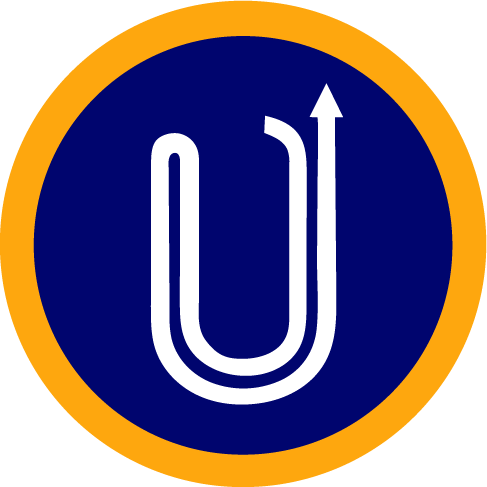Best Moving and Relocation Service
Get your free quote
Get your free quote

Excellent Customer Service
They are very careful and thorough. Their customer service is most
polite and precise in answering questions. Thank you SO much!”
WHY UNIVERSAL RELOCATIONS?
Relocate With Ease
Universal Relocations was established in 1998. In the very early years, we concentrated on developing our international moving business. We moved Corporate Expatriates and Diplomats from a wide range of business sectors. And we’re still working with many of those clients today.

Moving To USA
- Tuna
- Haitian animal hide drums
- Cuban cigars
- Blank tapes and CDs from Iran
- Absinthe
- Counterfeit items or items inappropriately using a federally registered trademark
- Products made from dog and cat fur
- Flavored cigarettes, including cloves
Moving To USA
Universal Relocations is a proud member of the International Movers Association, demonstrating our commitment to high industry standards and professionalism. Operating our FMC-licensed office in the USA, we ensure your belongings are handled safely and efficiently. Our dedicated team employs the right packing methods to safeguard your items during transport, providing peace of mind throughout the shipping process. We take care of all logistics, including customs clearance, to streamline your experience and prevent unnecessary delays. With a focus on timely door delivery, you can trust Universal Relocations for a seamless moving experience, prioritizing both your satisfaction and the security of your valuable possessions.
Whether you’re shipping baggage or the entire contents of your home, Universal Relocations is here to assist you. We specialize in handling all types of moves, catering to your specific needs. Our experienced team ensures that your belongings are packed securely and transported safely, regardless of size or quantity. From personal items to furniture, we manage each aspect of the moving process, including logistics, customs clearance, and timely delivery. Trust us to provide tailored solutions that fit your requirements, making your relocation as seamless and stress-free as possible, whether you’re moving a few bags or an entire household

UNITED STATES OF AMERICA CUSTOMS GUIDELINES FOR USED HOUSEHOLD GOODS AND PERSONAL EFFECTS
DOCUMENTS REQUIRED
- Copy of Passport (some ports require passports for all family members listed on the 3299)
- Form CF-3299 – declaration for free entry of unaccompanied articles (if applicable)
- Copy of visa (if non-US citizen / permanent resident) / copy of permanent resident card
- I-94 stamp / card
- A-1 visa (diplomats)
- Form DS-1504 (diplomats)
- CBP form 7501 - Customs entry summary
- Form CF-6059B – Customs declaration
- Copy of bill of lading (OBL) / air waybill (AWB)
- Detailed inventory in English
- Importers Security Filing (ISF)
- Food questionnaire
MOVING WITH UNIVERSAL RELOCATIONS:
Your Journey Awaits
Embark on your American dream with Universal Relocations as your devoted partner. Beyond being a relocation service, we are here to guide you into a life enriched by diversity and endless opportunities. Contact us today for a consultation, and let us transform your move into an adventure filled with culture, warmth, and exciting possibilities. Your American dream begins here!
Discover Frequently Asked Questions from Our Support
How Can We Help You?
The VACIS (Vehicle and Cargo Inspection System) exam is a non-intrusive inspection method used primarily by customs and border protection agencies to screen vehicles, cargo containers, and shipments for contraband, illegal substances, or security threats. This system employs various technologies, such as X-ray imaging, gamma-ray radiography, and advanced sensors, to examine the contents of cargo without the need for physical unpacking.
The VACIS exam helps expedite the clearance process by allowing officials to identify potential risks quickly while minimizing disruption to trade and travel. It is an essential tool in ensuring security and compliance in international shipping and logistics. If you have more specific questions about the VACIS exam or its procedures, feel free to ask!
An Intensive Exam (IE) is a thorough, detailed inspection conducted by customs authorities on cargo shipments to ensure compliance with regulations and to identify any potential contraband, illegal items, or security threats. This type of exam is typically initiated when there are concerns about the shipment based on various factors, such as:
Suspicious Documentation:
Inconsistencies or discrepancies in the paperwork accompanying the shipment.
Targeting Risk Indicators:
Based on the nature of the goods, the shipper's history, or the route taken.
Random Selection:
Some shipments may be chosen randomly for additional scrutiny.
During an Intensive Exam, customs officers may physically inspect the contents of containers, pallets, or packages. They may also utilize tools and technologies to assist in the inspection process. The goal is to ensure that all items adhere to regulatory requirements, including tariffs, safety standards, and import/export laws.
While Intensive Exams can delay the clearance process, they play a critical role in maintaining national security and compliance with international trade laws. If you have any further questions about the Intensive Exam or related procedures, feel free to ask!
Universal Relocations provides comprehensive unpacking services, placing your items neatly on a flat surface upon delivery. Our team also handles the assembly of basic furniture, including beds, tables, and sofas, ensuring that your essential pieces are set up properly. We strive to make your moving experience smooth and stress-free, allowing you to enjoy your new home from the moment you arrive
On of packing, you can expect the following from Universal Relocations:
Professional Team:
A trained and experienced team will arrive on time, ready to assist with the packing process.
Packing Supplies:
Universal will provide high-quality packing materials, including boxes, bubble wrap, packing tape, and protective coverings for your belongings.
Inventory Management:
The team will conduct an inventory of your items, ensuring everything is accounted for before packing begins.
Careful Packing:
Your items will be packed securely and carefully, with fragile items receiving extra protection to prevent damage during transport.
Organization:
The team will label boxes based on contents and designated rooms, making unpacking easier at your new location.
Communication:
The team will communicate with you throughout the process, addressing any questions or concerns you may have.
Disassembly Services:
If necessary, the team will disassemble larger furniture items for easier transport.
Post-Packing Review:
After packing is complete, they will review the inventory list with you to ensure all items are accounted for.
Expect a smooth, organized, and efficient packing day that sets the stage for a successful move. If you have any specific requests or concerns, it's a good idea to communicate them to the Universal team in advance.
Yes, Universal Relocations will conduct a pre-move survey to ensure a smooth and efficient moving process. During the pre-move survey, the team will:
Assess Your Belongings:
A representative will evaluate the items you plan to move, taking note of their quantity and condition.
Understand Your Needs:
They will discuss your specific requirements and preferences for packing, transportation, and any additional services you may need.
Determine Volume and Weight:
The survey will help determine the volume and weight of your shipment, which is crucial for accurate pricing and logistics planning.
Discuss Logistics:
The team will go over the logistics of your move, including timelines, potential challenges, and any special considerations.
Provide an Estimate:
Based on the survey findings, Universal will provide you with a detailed and transparent moving estimate that outlines costs and services.
Answer Questions:
This is an excellent opportunity for you to ask any questions or express concerns regarding the moving process.
Overall, the pre-move survey is designed to tailor the moving experience to your specific needs, ensuring that all aspects of your relocation are planned and executed smoothly.
Shipping food items to the USA in a container is possible, but there are specific regulations and guidelines you must follow to ensure compliance with U.S. Customs and Border Protection (CBP) and the Food and Drug Administration (FDA). Here are the key points to consider:
Allowed Items:
Certain food items can be shipped to the USA, including packaged and processed foods. Fresh fruits, vegetables, and meats are typically restricted or prohibited.
Packaging:
Food items must be properly packaged and labeled according to FDA regulations. Ensure the packaging is tamper-proof and meets all safety standards.
Documentation:
Proper documentation is required for shipping food items. This includes invoices, packing lists, and any necessary permits or certificates demonstrating compliance with U.S. regulations.
Inspection:
Food shipments are subject to inspection by customs authorities upon arrival in the USA. They will check for compliance with import regulations, which may involve a thorough examination of the container's contents.
Duties and Taxes:
Be prepared to pay any applicable duties or taxes on imported food items.
Contact Relevant
Authorities:
It's advisable to check with the USDA (U.S. Department of Agriculture) and the FDA for specific regulations related to the type of food you plan to ship.
Given these regulations, it's crucial to do thorough research and, if needed, consult with our experienced pricing manager in shipping food items to ensure a smooth shipping process.
Yes, you can ship both used and new furniture to the USA, but there are important regulations and considerations to keep in mind:
For New Furniture:
Regulations and Standards: New furniture must comply with U.S. safety and environmental regulations. Ensure it meets standards set by organizations like the Consumer Product Safety Commission (CPSC).
Documentation:
Proper documentation, including invoices and shipping manifests, will be required for customs clearance.
Duties and Taxes:
Be prepared to pay any applicable tariffs, duties, or taxes on new furniture upon arrival in the USA.
For Used Furniture:
Inspection and Quarantine: Used furniture may be subject to inspection to ensure it is free from pests, mold, and contaminants. Be sure to clean items thoroughly to reduce the risk of issues at customs.
Condition of Items:
Items that show signs of wear and tear may raise questions during inspection, so it’s important to ensure that the furniture is in acceptable condition.
Documentation:
Just like with new furniture, proper documentation is required. This includes receipts, a detailed inventory list, and potentially, certificates of cleanliness or pest inspection.
Restrictions:
Some items, like upholstered furniture, may have stricter regulations due to potential pest issues.
General Considerations:
Customs Regulations: Always check the latest customs regulations and guidelines from U.S. Customs and Border Protection (CBP) and the U.S. Department of Agriculture (USDA) regarding shipping furniture to ensure compliance.
Logistics Provider:
Consider working with a UNIVERSAL RELOCATIONS experienced in international shipping to navigate regulations and ensure smooth transport and customs clearance.
Shipping furniture to the USA can be a straightforward process if you adhere to the necessary guidelines and regulations.
Yes, you can generally ship electronics under the Transfer of Residence (TOR) rules when moving to the USA. Here are the key points to consider:
Eligibility:
Transfer of Residence typically applies to individuals who are relocating to the USA permanently or for an extended period. Eligible items often include personal belongings, household goods, and electronic equipment.
Used Electronics:
When shipping used electronics as part of a household move, they may qualify for duty exemptions, provided they were owned and used by you prior to the move. Be prepared to demonstrate ownership and use (e.g., receipts, previous addresses).
Documentation:
You'll need to provide documentation to customs,
including:
A detailed inventory list of the items being shipped.
Proof of residency in your previous country (e.g., lease agreements, utility bills).
Any relevant forms or declarations as required by U.S. Customs and Border Protection (CBP).
Duties and Taxes:
If the electronics are eligible under the TOR program and meet the necessary criteria, they may be exempt from import duties and taxes. However, this can vary based on the type and condition of the items.
New Electronics:
New electronics generally do not qualify for duty-free status under the Transfer of Residence rules. If you purchased the electronics recently and are bringing them into the U.S. for personal use, they might incur duties.
Restrictions:
Keep in mind that certain electronic items may still face restrictions, so it’s essential to check specific guidelines.
Recommendations:
Consult with Universal Relocations Manager for U.S. Customs and Border Protection (CBP) for the most current regulations and to verify your specific circumstances.
Hire a Customs Broker:
Consider working with a customs broker who can assist with the necessary paperwork and ensure compliance with U.S. import laws.
By following these guidelines, you can facilitate a smoother shipping process for electronics under Transfer of Residence to the USA.
The duration for door-to-door shipping from India to the USA by sea can vary based on several factors, but generally, you can expect the following:
Transit Time:
The actual sea transit time typically ranges from 25 to 40 days. This does not include additional time for loading, unloading, customs clearance, and delivery to your final destination.
Total Shipping Time:
When considering the entire process, including packing, loading, sea transit, customs clearance, and final delivery, the total door-to-door shipping time can range from 6 to 12 weeks.
Factors Affecting Time:
Shipping Route: Specific routes may take longer based on the shipping line and destination ports.
Customs Clearance: Clearance times may vary depending on the shipping company and the specifics of your shipment (e.g., whether items require inspection).
Destination:
The specific location in the USA where the shipment will be delivered can impact delivery times.
Shipping Method:
Whether you choose a full container load (FCL) or less than container load (LCL) service could influence duration, as LCL shipments may take longer to consolidate.
Holiday Seasons and Peak Times:
Shipping during peak seasons or around holidays may result in longer transit times due to increased volume.
Recommendations:
Consult with Universal Relocations Move Manager: For a more accurate estimate based on your specific shipment, it’s best to consult with your logistics or shipping provider.
Tracking Services:
Universal Relocations provide tracking services, which can help you monitor the status of your shipment in transit.
Planning ahead and understanding these factors will help ensure a smoother shipping process from India to the USA.
When relocating to the U.S. and shipping personal belongings, you may need to provide various documents to customs, especially under the Transfer of Residence program. Here’s a summary of the required documents you mentioned and their purposes:
Copy of Passport:
Some ports require a copy of passports for all family members listed on Form CF-3299 to verify identities.
Form CF-3299: This is the declaration for free entry of unaccompanied articles. It’s required to declare your intent to bring household goods and personal effects into the U.S. duty-free.
Copy of Visa:
If you are a non-U.S. citizen or permanent resident, you need to submit a copy of your visa, or if you are a permanent resident, a copy of your permanent resident card (Green Card).
I-94 Stamp/Card:
This form indicates your arrival and authorized stay in the U.S., which is essential for customs clearance.
A-1 Visa (Diplomats):
If you hold an A-1 visa, this documentation supports your status as a diplomat and may affect your customs exemptions.
Form DS-1504 (Diplomats):
This form is applicable for diplomats and details the items being imported under diplomatic status..
Copy of Bill of Lading
(OBL) / Air Waybill (AWB):
These documents are provided by the shipping line or airline, detailing the transportation of your goods.
Detailed Inventory in
English:
You must provide a comprehensive inventory list of the items shipped, including descriptions and values, in English.
Importers Security Filing
(ISF):
This form provides U.S. Customs with information about the shipment before it arrives at U.S. ports.
Food Questionnaire:
If you are shipping food items, this questionnaire may be required to assess compliance with U.S. regulations regarding importing food products.
Recommendations:
Consult Universal Relocations Move Manager: Discuss these requirements to ensure that you have all the necessary documentation prepared correctly.
By ensuring you have these documents ready and correctly filled out, you can facilitate a smoother customs clearance process for your belongings as you relocate to the U.S.

 800-13-7356
800-13-7356










